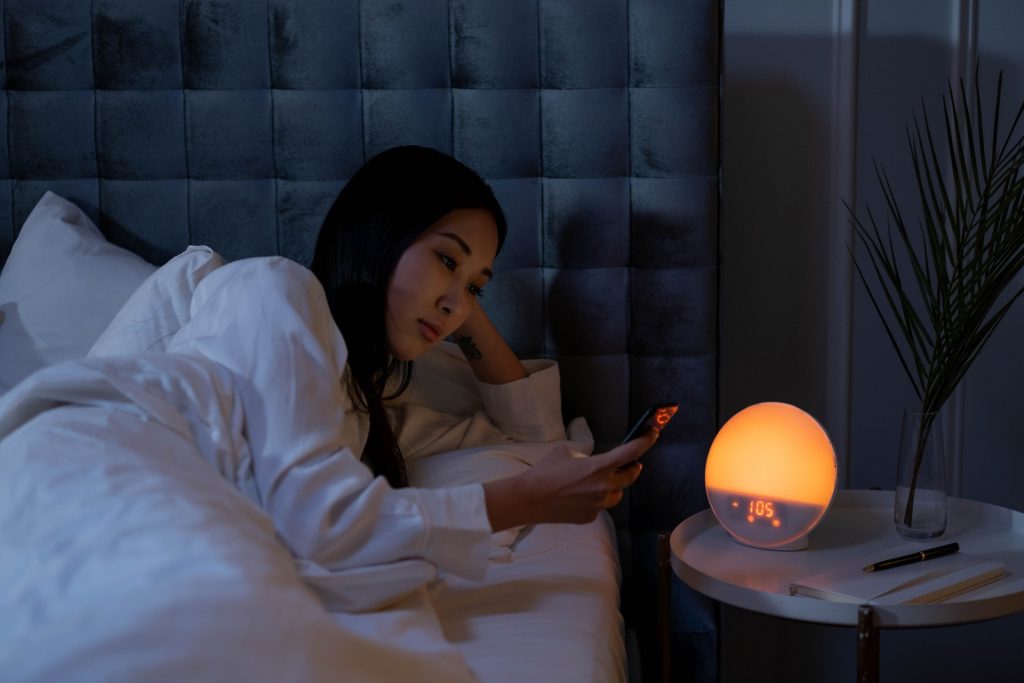
It’s normal to be anxious from time to time. When delving into a new venture or facing a challenge, feeling nervous or even a little fearful are common reactions to life’s stressors. However, if you find that worry and anxiety have become constant companions, and these uncontrollable feelings are interfering with your life, then it’s time to get help.
At Taylor Counseling Group, our professionally trained stress and anxiety therapists can help you examine the anxiety you are experiencing. If there is no apparent root cause, we will work with you to explore and consider the relevant factors in your life that may be impacting your feelings of worry and causing your anxiety symptoms.
- Meet Our Therapists
- Should I Seek Anxiety Counseling?
- Therapy For Social Anxiety
- How Is Anxiety Treated?
- Connection Between Anxiety and Sleep
- What Are The Signs & Symptoms Of Anxiety?
- Anxiety Coping Skills
With a deeper sense of understanding, we’ll be able to create a treatment plan to help control anxiety and improve your overall health and wellness.
Should I Seek Therapy for Anxiety?
While most people believe anxiety is a bad thing, it can serve a useful purpose. Your body’s natural response to stress helps you react quickly to emergencies and protects you from danger. Anxiety can also motivate you to work harder or stay focused on a goal. It can even help you with tense situations.
There reaches a point, however, when the normal anxiety that comes from living your life crosses a line and interferes with your ability to function in a healthy way. This debilitating anxiety causes excessive, irrational fears that impact your mind, your emotions, your relationships and your personal and professional responsibilities.
When this happens, you may want to seek out a mental health professional who specializes in therapy for anxiety.
Schedule An Anxiety Counseling Session
Book Online
Therapy For Social Anxiety
A person with social anxiety experiences symptoms of fear in places and situations where they may be judged or scrutinized by others. These situations may include meeting new people, eating in front of strangers, talking in public, answering questions in class, using a communal restroom or speaking to people in a store. Doing everyday things may cause anxiety due to fear of being humiliated or ridiculed.
People living with social anxiety experience fear that is intense and feels beyond their control.
If you’re concerned you may have social anxiety disorder, a trained therapist can assist you with a possible diagnosis and subsequent treatment. Social anxiety symptoms are mostly treated with psychotherapy.

How Is Anxiety Treated?
If you struggle with anxiety, understanding this disorder is key.
At Taylor Counseling Group, our anxiety therapists treat more than the surface symptoms you’re experiencing. We’ll help you gain insight into where your anxiety originated, identify triggers that cause your worries and fears, and guide you in developing specific interventions to cope with anxiety as it happens. During your sessions, you’ll be armed with the tools you need to overcome anxiety.
Anxiety disorders differ considerably, so your therapy sessions will be intended for your specific anxiety type and symptoms. Our therapists are well-trained in treating a variety of anxiety-based disorders, including:
- Generalized anxiety disorder
- Social anxiety
- Panic disorder
- Specific phobias
- Post-traumatic stress disorder
As you confront your anxiety, understand it more fully and learn where it came from, you should feel more in control and better able to face the future. Once you implement the skills our team teaches you, you’ll feel prepared to manage your anxiety in the real world and see your symptoms slowly fade.
Our overall goal is to see your anxiety reduced to a level where you’re controlling it rather than it controlling you.
Can You Overcome Depression and Anxiety?→
We have offices located in:
Austin | Dallas- Fort Worth | Houston | San Antonio | Waco

The Connection Between Anxiety and Trouble Sleeping
Anxiety and trouble sleeping are closely connected, as sleep disturbances are a common side effect of anxiety disorders. People who experience anxiety tend to worry and ruminate in bed at night, which can prevent them from falling asleep. Distress about falling asleep can also aggravate the situation further and cause sleep anxiety.
There is also evidence that anxiety disorders affect a person’s sleep cycles. Anxious rumination before sleep can trigger nightmares and affect the vivid dreaming present during rapid eye movement (REM) sleep, which creates a greater likelihood of sleep disturbances. These disturbances and nightmares reinforce negative thoughts surrounding sleep, increasing anxiety symptoms.
Cognitive behavioral therapy (CBT) can be a helpful treatment if you have an anxiety disorder, as it helps you reframe negative thinking. Addressing your anxiety, fear and negative ruminations can help them subside and therefore reduce your sleep anxiety.
Schedule A Counseling Session For Anxiety
Book Online
Signs and Symptoms of Anxiety
You’re probably wondering if your anxiety has reached that point. How do you know if your stress and fears are normal or if you’re struggling with an anxiety disorder? Here are some signs and symptoms that could indicate your need for anxiety counseling:
- Excessive fear, worry, nervousness or panic
- Uncontrollable, obsessive thoughts
- Dwelling on or flashing back to a traumatic event
- Irrational rituals or behaviors
- Feeling on-edge or restless
- Inability to be still or calm
- Difficulty concentrating
- Irritability
- Muscle tension
- Numbness in the hands or feet
- Dry mouth
- Nausea or gastrointestinal problems
- Excessive sweating
- Heart palpitations
- Shortness of breath or hyperventilation
- Dizziness
- Sleep disturbances

Anxiety Coping Skills to Support You
People with anxiety disorders experience excessive fear, panic, worry and anxiety in everyday situations. Seeing a health care professional such as a therapist can help you deal with underlying physical and emotional issues. In addition to this, some coping strategies can assist you, including the following:
- Keeping active: Sticking to a weekly exercise routine is a powerful stress reducer.
- Avoiding stimulants: Recreational drugs, cigarettes, caffeine and high-sugar drinks can cause or worsen anxiety.
- Prioritizing sleep: Getting enough sleep helps you feel rested and energized, boosting your mood.
- Eating healthy: Healthy eating helps your body feel good, and although more research is needed, some studies suggest it can reduce anxiety. Include more vegetables, fruits, whole grains and fish in your diet for balanced meals.
- Writing down your thoughts: Journaling helps you process emotions and is also a great way to keep track of your most significant stressors and triggers. Your notes are also helpful to your therapist.
- Socializing: Spending time with loved ones can help you cope with anxiety disorder symptoms and provides a healthy support structure.
- Maintaining a treatment plan: Being intentional is vital to coping with anxiety. That means keeping to your therapy appointments, completing assignments and being consistent with treatment plans.
Find Help for Anxiety in Central Texas
Whether you’re struggling with unrelenting worries, panic attacks, obsessive thoughts, or a debilitating phobia, please understand that you don’t have to live with anxiety and fear. Compassion, guidance and evidence-based treatment are all available at Taylor Counseling Group.
Don’t let anxiety rob your peace of mind for one more day. Schedule your appointment at one of our locations in Dallas, Houston, San Antonio, Waco, and throughout Central Texas to learn the skills you need to take control.



















































